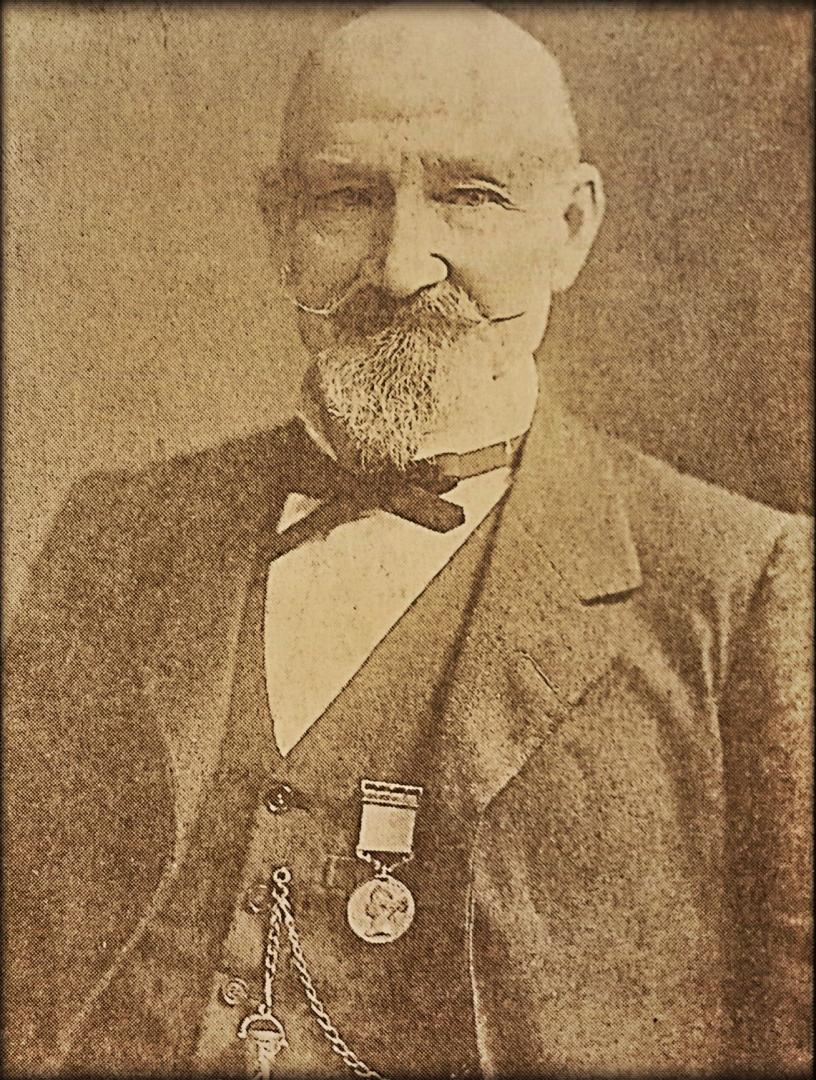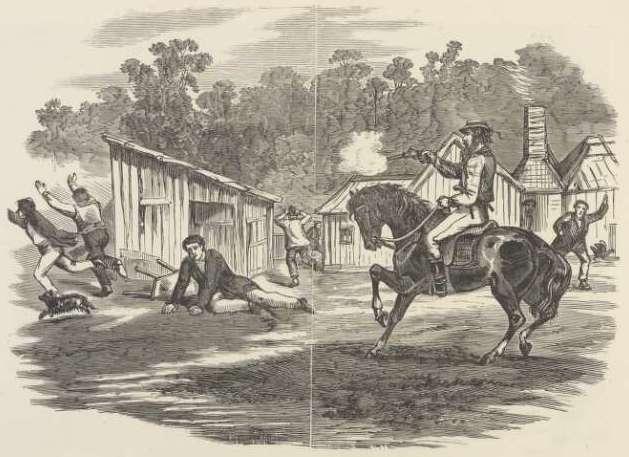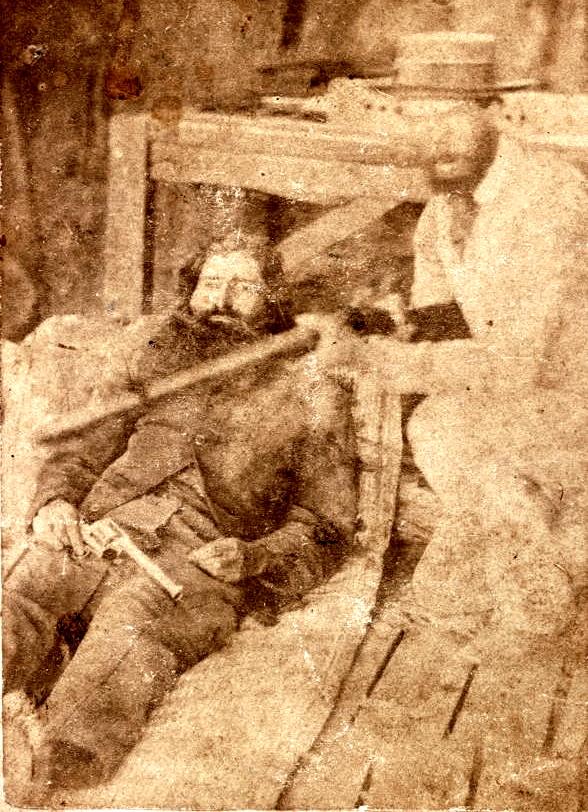
1830 - 1865
John Owen
Summary
Name:
Nickname:
Daniel Morgan / Mad Dog Morgan / Billy the Native / Warrigal / Down‑the‑River Jack / John Smith / Sydney Bill / Beardie / Dan the Breaker / Jack MorganYears Active:
1850 - 1865Birth:
April 30, 1830Status:
DeceasedClass:
Mass MurdererVictims:
4Method:
ShootingDeath:
April 09, 1865Nationality:
Australia
1830 - 1865
John Owen
Summary: Mass Murderer
Name:
John OwenNickname:
Daniel Morgan / Mad Dog Morgan / Billy the Native / Warrigal / Down‑the‑River Jack / John Smith / Sydney Bill / Beardie / Dan the Breaker / Jack MorganStatus:
DeceasedVictims:
4Method:
ShootingNationality:
AustraliaBirth:
April 30, 1830Death:
April 09, 1865Years Active:
1850 - 1865bio
John Owen—later better known as Daniel Morgan—was born on 30 April 1830 in Appin, New South Wales, the illegitimate son of Mary Owen ("the Gypsy") and George Fuller, a costermonger; some sources even name an ex-convict, Samuel Moran, as his father. From a young age, he was raised by a Campbelltown local nicknamed "Jack the Welshman".
Morgan attended a Catholic school in Campbelltown, but the classroom held no charm. He was a classic "n’er-do-well": society bored him, the bush thrilled him—solitude was his serenity. At 17, he became a stockman in the Murrumbidgee district—but it wasn’t stepping stones to respectability that followed. Instead, he turned into a horse and cattle thief—legend has it he stole livestock, drove them far off, and sold them with ease.
By the early 1850s, he was already earning the moniker "Bill the Native," a notorious horse thief living a hermit’s existence in the Avoca mallee scrub. One chase left him shot in the knee—by settlers chasing him for miles.
In June 1854, operating under alias John Smith, he robbed two traveling hawkers near Castlemaine. A desperate resistance led to his capture, and he got 12 years’ hard labor on the prison ship Success in Williamstown. While working in a nearby quarry, Morgan lost the tip of a finger in an accident.
In March 1857, during an official’s visit to the quarry, a murder took place on board Success: Inspector-General John Giles Price was beaten to death by prisoners. Morgan might’ve been among them—though he wasn’t convicted, he was transferred to Pentridge Prison afterward.
He gained a ticket-of-leave in June 1860 in Yackandandah—but job offers turned him away due to his record. He soon found himself on the lam, stealing a gold watch while trespassing on Dr. Rowe’s station. He stole horses at Whitfield and Demgamero, and provisions at Mount Typo—escaping an angry posse after being wounded in the arm.
Those next few years were low-key—but Morgan honed his bushcraft, horsemanship, and a network of sympathizers in the Riverina. By mid‑1863, he was fully operating as a bushranger with flair and fear
murder story
By June 1863, Daniel Morgan was on the move. On the 17th, he and a companion bailed up two men at Walla Walla—clearing goods worth £30 from a hawker and more from a squatter, even returning some when one said they weren’t associated. The next day, he robbed racehorses from Cookendina station. On 29 July, the duo tied overseers at Wallandool and made off with horses, harness, and other loot—Morgan shrugging, “I expect I’ll be shortly taken, so I may as well go the whole hog".
By August 1863, he had wounded Police Magistrate Henry Baylis in a chase—cutting telegraph lines and leading to a reward of £200; this only grew as his crimes escalated. That same month, he shot at Baylis during a nighttime ambush; Baylis survived, the bullet housed in a gold casket and worn by the brave magistrate.

In November, Morgan went solo: at Burrumbuttock station he had breakfast, stole a suit, rode Gibson’s horse to the pub, and then forced Gibson into signing cheques for his shearers—and a hefty one for himself—before galloping off. He then burned stores, forced hostages to stay overnight, and returned next day as if overseeing troops.
June 1864 marked a deadly turn. On the June 2, 1864, he robbed drovers at Round Hill station; by the 19th he held them at gunpoint over gin, turned off-track comments into gunshots at the superintendent and a worker, then hunted down John McLean—shooting him in the back and later partying until dawn. McLean died three days later.

On 24 June, he shot Sergeant David Maginnity—who later died—during a bush encounter. Constable Churchley was fired upon too. A £1,000 reward was officially issued.
In September, Morgan ambushed four police at "Doodle Coma": bullets flew into their tent, killing Senior-Sergeant Thomas Smyth. Smyth died after a harrowing journey to medical help.
Morgan torching tents, holding up stations, and robbing mail through late 1864 became regular. In November, he robbed the Deniliquin mail coach—opened letters, then let the mail pass. In December, he attacked a camp at Kyeamba, shot a Chinese miner, burned tents, and held hostages for hours—chatting freely about the murders he had committed. He also stuck up hawkers at Pulletop—taunting them that he "could’ve shot them the night before" for their confidence.
By early 1865, he was moving into Victoria. At Milkldolingong and Whitfield, he lit haystacks, held up stations, demanded brandy, and taunted detectives disguised as pedlars. He then controlled roads near Wangaratta—stopping carriers, robbing them, showing off his renegade rules.
On 8 April 1865, after a spree of raids in Victoria, Morgan arrived at Peechelba station. He held the household in the parlour—but a maid, Alice McDonald, slipped a warning to George Rutherford next door. Police and local men armed themselves and surrounded the homestead overnight.
Morgan, grooming his beard into curls and sipping breakfast, remained strangely calm. When he went out to choose a horse, the ambush struck: John Wendlan fired, hitting him in the back.

Morgan collapsed, reproaching the men for not giving him a fair chance. Dying slowly, he even asked someone to rub his cold hand; he passed just before 2 p.m. at the age of 34.